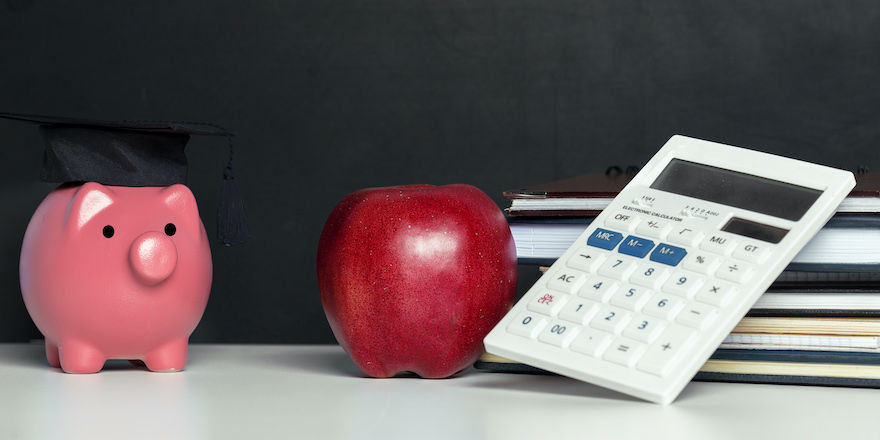
In August, President Joe Bidon made an announcement that he’ll forgive $10,000 in U.S. federal student debt for most borrowers. This action is meant for students who earned under $125, 000 per year as individuals during the Covid-19 pandemic. On top of this, he also extended the student loan payment pause until December 31, 2022, meaning students with federal loans don’t have to make payments and will have 0% interest rates on their loans.
That’s great news for students in the U.S., but is there anything similar happening for Canadian students? Yes! So, what is Canada doing to reduce student debt?
Canada waives student loan interest
The Canadian government announced that from April 1, 2021 to March 31, 2023, students won’t have any interest charged on their Canada Student Loans and Canada Apprentice Loans. So, what does this mean for you?
I’m still in school
If you’re still in school, then you’re not yet in the repayment stage and won’t have any interest on your loan at this time anyways.
I just finished school
If you’ve graduated from school, reduced your course load from full-time to part-time, or have left school or taken time off from school, you’re technically in the six-month grace period. This means that you won’t have to make payments and there won’t be any interest growing on your loan.
I’ve been out of school for more than six months
After you’ve been out of school for more than six months, you’re in the repayment stage of your student loan. This is when the waiving of student loan interest is important! Typically, you’d be required to begin making payments on your loan, including the interest that you accrue in this time period. But, until March 31, 2023, you won’t be charged interest on your loan.
What else is the federal government doing to help students?
In a tweet last month, Canadian Prime Minister Justin Trudeau reminded students that the government is supporting them with programs like the Canada Learning Bond and doubling the Canada Student Grants.
Canada Learning Bond
Post-secondary students can get up to $2,000 from the Canada Learning Bond. When parents create a savings plan for their children, the Canada Learning Bond is money that the government adds to that Registered Education Savings Plan (RESP) for children from families with a low income. Essentially, when an RESP is created, the government adds $500 to it in the child’s first year of eligibility, and around $100 each subsequent year that they’re eligible until they turn 15. And the best part is that you aren’t required to personally contribute to the RESP to receive the government additions.
But what if your parents never created an RESP for you? Don’t worry! As of January 1, 2022, students who didn’t get this money as kids can apply for it themselves when they turn 18 up until they turn 21. To start this process, you simply need to open an RESP yourself and request the Canada Learning Bond. To be eligible, you must be born on or after January 1, 2004, be a resident of Canada, have a Social Insurance Number, and be named as a beneficiary to an RESP (which you’ll have just created).
Canada Student Grants
In the past, undergraduate students who have applied for student aid with their province or territory have been automatically assessed for eligibility to receive grants up to $3,000 for full-time students and $1,800 for part-time students each year. But now the government has doubled these grants until July 31, 2023. So, you can get up to $6,000 per year if you’re a full-time student, or $3,600 per year for part-time students! And, the best part about grants is it’s free money! You don’t have to pay it back.
So, as Trudeau says, the Canadian government has got your back. While the U.S. is cancelling debt for many low-income students, Canada’s taking a more measured approach. While we’re not erasing student debt entirely — at least not yet anyway — Canada’s working to make education more accessible. Whether you’re looking for more money to fund your education, or you’ve graduated and aren’t ready to pay back your loans, the government has modified previous regulations to help decrease the financial stress on students.
Explore your student aid options
